Freelance producing is an exciting and dynamic field.
Breaking into it requires not just top-notch production skills, but also a deep understanding of client needs and the right marketing strategies.
As well as the ability to manage the business side of things, of course.
It can get a little tricky, especially because it’s so saturated, but if you know the right tips, tricks, and techniques, you can become a freelance producer in no time.
That’s exactly why we’re breaking down everything you need to know, like:
- Defining your niche and specialization ✓
- Building a standout portfolio & finding your voice ✓
- Securing your first few clients ✓
- Leveraging social media for growth ✓
- Pricing your services effectively ✓
- Drafting contracts for protection ✓
- Upselling and cross-selling services ✓
- Creating digital products for extra income ✓
- Managing and scaling your business ✓
- Much more about freelance producing (in detail) ✓
Luckily, after reading this article, you’ll know everything about freelance producing and how to kickstart your career as a freelance producer.
Plus, you’ll be able to market yourself effectively, set the right prices, and ensure client satisfaction like a professional.
Whether you’re new to the industry or looking to refine your approach, these insights will help you secure jobs fast and build a successful career in freelance production.
Side note, we’ll be covering the key skills needed for most of the following sections, so you really get a thorough understanding.
So, let’s dive in…
Table of Contents
- Freelance Producing: Breaking it Down
- Kicking Things Off (Freelance Production 101)
- Marketing Yourself Effectively
- Finding Opportunities and Securing Clients
- Setting Up Your Freelance Business
- Expanding Your Reach and Income Streams
- Bonus: Time Management and Productivity
- Freelance Producing: Final Thoughts
Freelance Producing: Breaking it Down
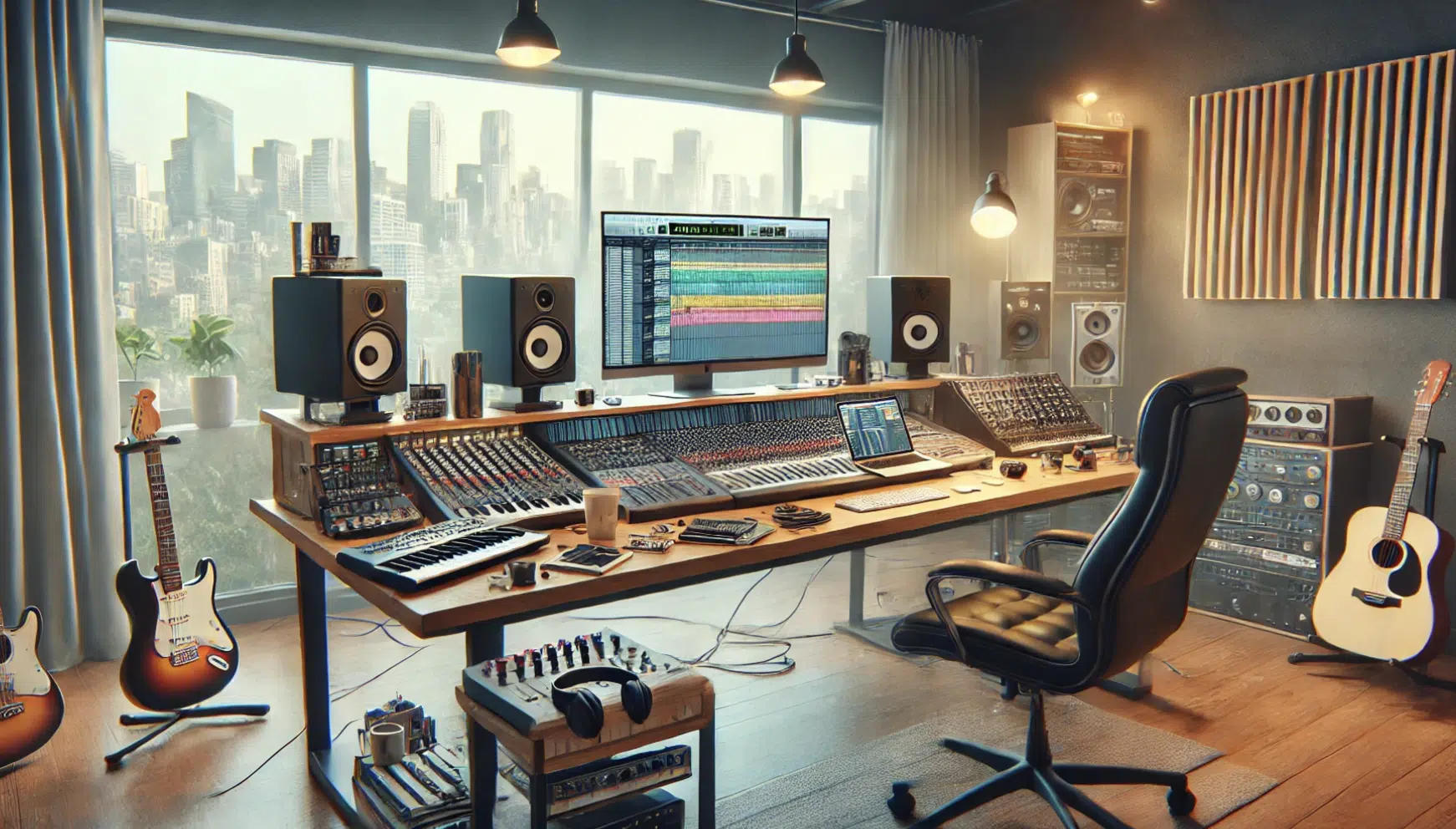
Freelance producing is all about taking control of your career, working with different clients on a project-by-project basis, and creating a unique path in the production world.
As a freelance producer, you’re in charge of everything, like:
- Creative direction
- Post-production
- Budgeting
- Marketing yourself
- Etc.
It’s not just about knowing how to use a DAW…
It’s about managing relationships, understanding different genres, and creating epic sounds that match your clients’ visions.
As well as incorporating visual effects as part of the production process, which is actually super useful to reel people in and make a lasting impression.
The freedom to choose projects, set your rates, and work from any location (whether it’s a cozy studio in New York or a remote setup on a beach) is what draws many to freelance producing.
But to really thrive in the freelance producing scene, you need to know how to secure jobs fast and ensure client satisfaction, which is what we’ll be breaking down today.
NOTE: Project management is also key in freelance producing as it helps in organizing tasks, meeting deadlines, and mastering smooth communication with clients.
Kicking Things Off (Freelance Production 101)
To kickstart a career in freelance producing, you need more than just production skills. It’s all about finding your place in the music industry and positioning yourself to deliver exceptional results. So, let’s get into it.
Defining Your Niche and Specialization

As a freelance producer, finding a niche is not only the first step, it’s a game-changer.
Whether it’s specializing in post-production for film and TV, crafting beats for up-and-coming hip-hop artists, or focusing on sound design for podcasts, your niche defines your services and helps attract the right clients.
You might find yourself drawn to certain genres or creative styles, and that’s where you shine (think about what you really excel at, it’s pretty simple).
Figuring this out early on helps in developing a focused strategy to market yourself effectively.
The Roles & Responsibilities of a Freelance Producer

A freelance producer wears many hats 一 managing everything from the initial planning phase of a project to post-production.
You’re responsible for setting the creative direction, whether that’s crafting the right sounds for a podcast or directing the visual vibe of a music video.
This involves hands-on work with editing, mixing, mastering, and sometimes adding special effects to bring a project to life.
You’ll also be collaborating with other producers, artists, and even directors, so you’ll need some serious strong communication and leadership skills.
On the business side of things, you need to manage budgets, schedules, and client expectations, often tweaking feedback/revisions to ensure client satisfaction.
Every step requires a strategic approach to planning and a commitment to delivering a polished final product.
The ability to juggle these many, many responsibilities is what sets a great freelance producer apart from all the others.
Creative Direction and Vision

As a freelance producer, having a clear creative direction and vision is the number one priority, because without it, you’ll just be shooting in the dark.
This means not only understanding your client’s goals and objectives but also being tuned in to your target audience and current market trends.
Your role is to develop a concept and strategy that aligns with the client’s vision while infusing your own creative ideas, style, and expertise.
In the production process, your creative direction and vision guide the team 一 ensuring that the final product meets (or, better yet, exceeds) client expectations.
A freelance producer with strong creative direction skills can elevate a project and deliver high-quality outcomes that ensure, you guessed it, client satisfaction.
I hope you’re starting to see a pattern here, because the client is everything.
Key skills required for creative direction and vision include:
- Understanding the client’s goals and objectives
- Knowledge of the target audience and market trends
- Ability to develop a concept and strategy that aligns with the client’s vision
- Creative thinking and problem-solving skills
- Strong communication and collaboration skills
Post-Production and Editing
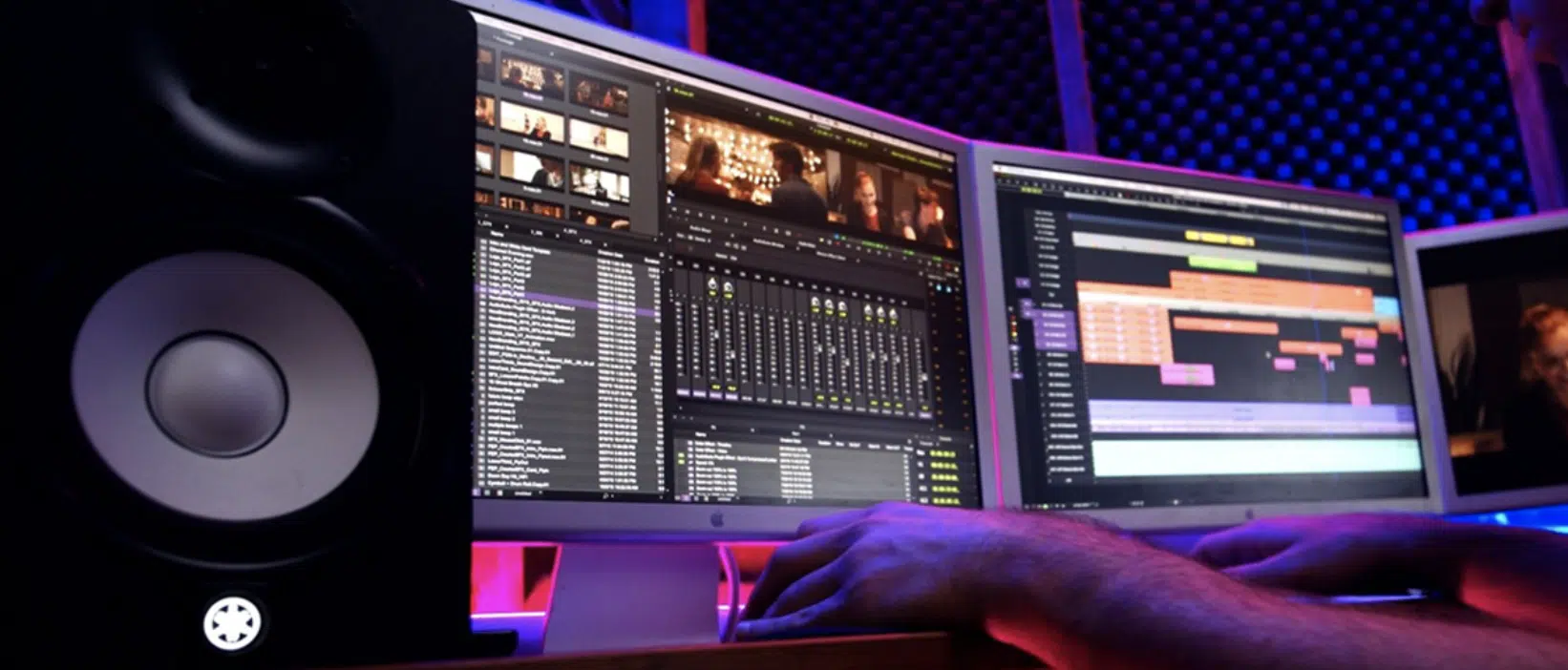
Post-production and editing are super important stages in the production process, and as a freelance producer, you need to be a monster in these areas.
This includes video editing (with software like Adobe Premiere) and the ability to work with special effects/visual effects to almost hypnotize people.
During post-production, you are responsible for overseeing the editing process, ensuring that the final product aligns with the client’s vision and is delivered on time.
This requires a keen eye for detail, the ability to work under pressure, and a commitment to meeting deadlines every single time.
Key skills required for post-production and editing include:
- Knowledge of video editing software such as Adobe Premiere
- Understanding of special effects and visual effects
- Attention to detail and ability to work under pressure
- Strong communication and collaboration skills
- The ability to meet deadlines and deliver high-quality outcomes
Creating a Portfolio That Stands Out
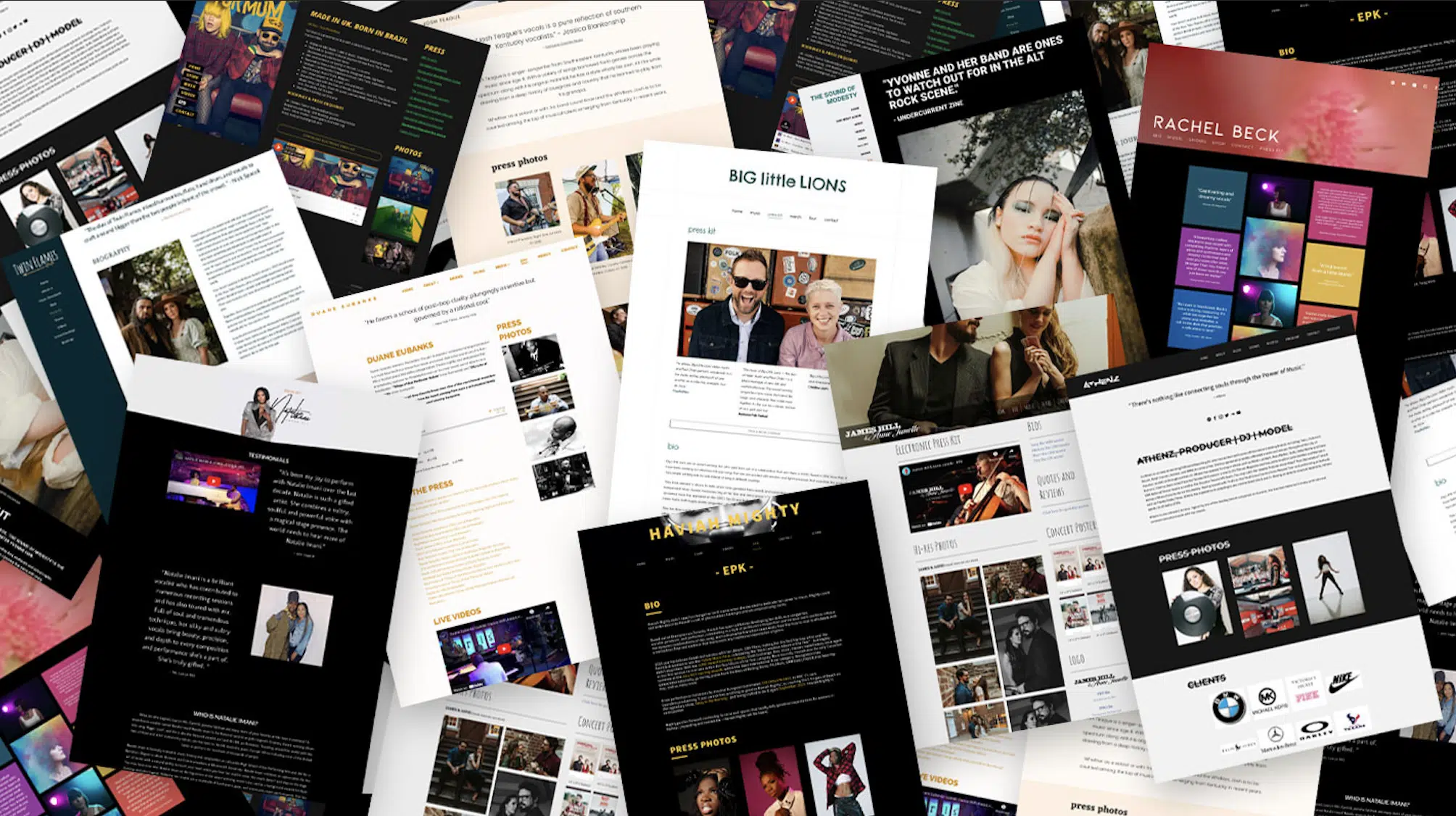
Your portfolio is your best marketing tool as a freelance producer.
It should showcase a range of projects that highlight different aspects of your production skills, such as:
- Beat-making
- Mixing
- Mastering
- Effects & experience with different plugins, software, etc.
- Other post-production work
For example, if you specialize in creative sound design, include projects that demonstrate your ability to knock out unique sounds and special effects for films or TV.
Be sure to add YouTube videos, detailed case studies, or even behind-the-scenes content that explains your creative direction and decision-making process.
I mean, potential clients are much more likely to hire you when they see how versatile and skilled you are in all different production scenarios.
Getting Your First Few Clients
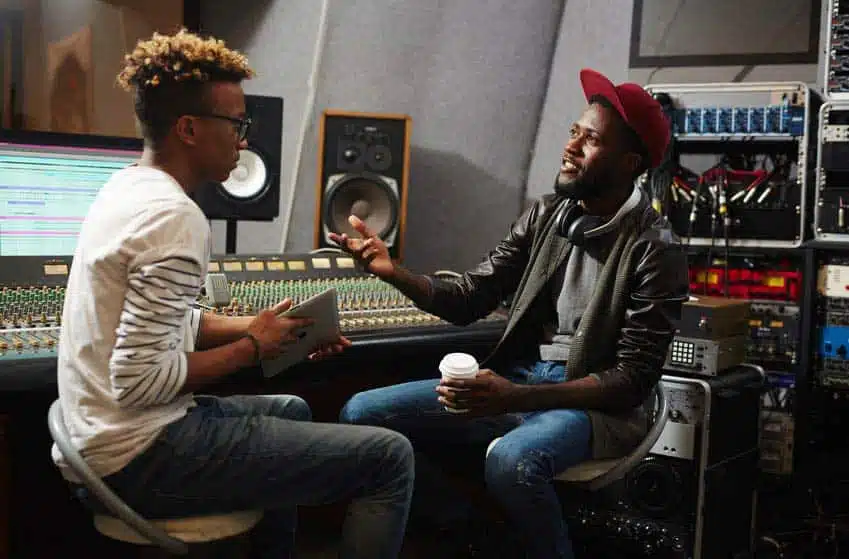
Securing those first few clients as a freelance producer can be challenging, but strategic networking and targeted outreach can make all the difference, for real.
So, start by offering your services to local artists, indie bands, or even content creators who need original music for their:
- YouTube channels
- Podcasts
- Short films
- Etc.
You could also try offering special introductory rates or packages to build up your portfolio and get some super positive testimonials.
Joining music communities, attending local music events, and actively participating in industry forums or broadcast platforms is always smart, too.
A great tip is to focus on creating client satisfaction through over-delivery 一 this can turn your early projects into long-term opportunities.
Branding Yourself as Freelance Producers

Branding is more than just a logo or a catchy name…
It’s about the very essence of who you are as a producer and who you want to be in the freelance producing world.
So, make sure your online presence (LinkedIn, SoundCloud, your personal website, etc.) reflects your unique style and approach to production.
A strong brand will make you memorable and help you stand out in a crowded market of freelance producers.
Also, don’t forget to align your brand with the types of projects and clients you’re seeking, because you don’t want the wrong business.
Marketing Yourself Effectively
Marketing is key for all freelance producers looking to grow and evolve. The right strategies will help attract more clients and get your name out there in the industry. So, next, let’s break it all down so you can be on the top of the freelance producing pyramid.
-
Using Social Media to Attract Clients

Social media is a powerhouse for freelance producers, and that’s not changing any time soon.
Social media sites like Instagram, YouTube, and TikTok are the best places to really showcase your work, connect with potential clients, and collaborate with other producers, so don’t overlook its impact.
To build engagement and trust, make sure to post:
- Behind-the-scenes videos
- Production tips
- Clips from completed projects
I mean, they don’t want to hire somebody who doesn’t have any proof that they’re actually good at what they do.
Remember, consistency is key, so develop a strategy that aligns with your brand and keep your content fresh and relevant all day long.
-
Networking in the Music Industry
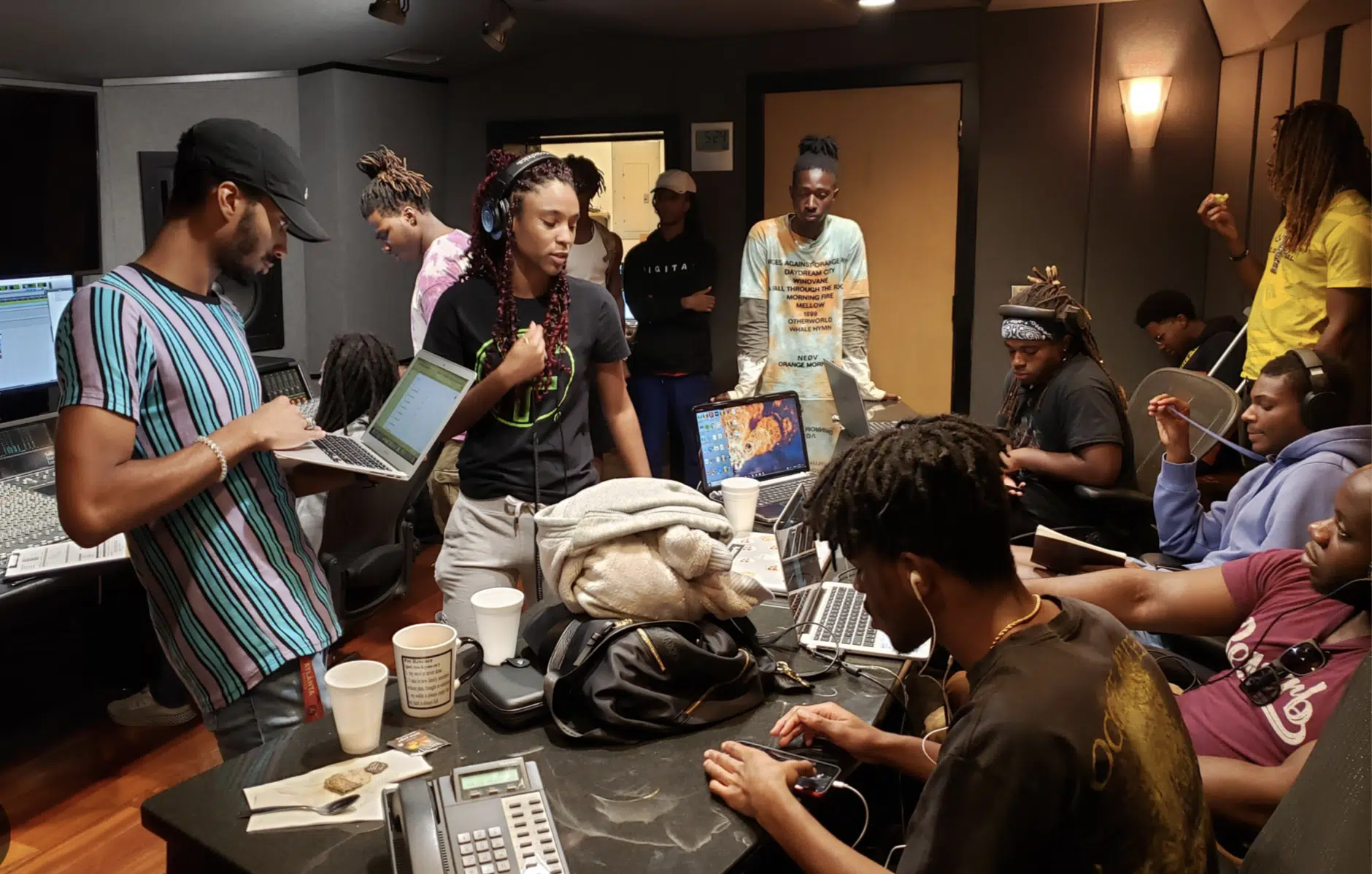
Networking is also essential when you’re getting into freelance producing, and the goal is to build relationships wherever and whenever you can.
You have to be attending events as frequently as possible like music conferences, industry mixers, and joining online communities.
Think about the future, because onnections made today could lead to project collaborations or some sick job opportunities down the line.
Communicate with genuine interest and always follow up 一 the very best freelance producers know that success comes from who you know and how you work with them.
-
Utilizing Music Platforms and Marketplaces

Music platforms and marketplaces are excellent for freelance producers looking to expand their reach and find projects.
Make sure to check out websites like SoundBetter, Fiverr, and Upwork to list your services and attract potential clients looking for specific types of production work.
From beat-making and mixing to full post-production support, you can put it all there.
To stand out in the freelance producing world, your profile should be optimized with a detailed job description, showcasing your:
- Skills
- Responsibilities
- What makes your work unique
Also, make sure to include examples of your projects and any big-name clients you’ve worked with because people love to see that kind of stuff.
And consider offering different service packages to cater to various budgets and needs, because the more things you lock down, the better.
Finding Opportunities and Securing Clients
Finding the right opportunities as freelance producers is a mix of relentless searching and strategic positioning. The right approach can quickly turn prospects into repeat clients, which is what it’s all about. Let’s break it down.
-
Identifying Potential Clients and Their Freelance Producing Needs

Identifying the right clients is key to growing as a freelance producer, so start by researching the types of projects you want to work on, like:
- Film scoring
- Producing for brands
- Creating beats for emerging hip-hop artists
Once you’ve narrowed it down, dive into understanding the specific needs of these clients and what they really respond to.
Research is key here, no ifs, ands, or buts (you do NOT want to wing it).
For example, a brand might need a catchy jingle that aligns with its image, while a film director may seek atmospheric sounds that capture the essence of a scene.
Tweaking your outreach and proposals to these unique needs shows potential clients that you are creative, adaptable, and responsible for delivering exactly what they need.
-
Creating Pitches That Get Responses

A compelling pitch can make or break your chance to secure jobs fast.
Make sure your pitches are concise, focused on the client’s needs, and shows how your skills and experience align with their unique project goals.
Basically, you want to sell yourself as the best possible option for them (almost like they need you more than you need them).
Also, include links to relevant projects in your portfolio that demonstrate your capabilities in production, editing, or creative work.
NOTE: Make sure to always personalize each pitch 一 mention their recent work, comment on their style, or suggest something specific you can bring to the table.
-
Pro Tip: Building Long-Term Relationships with Clients

Securing a project is just the beginning… The real success lies in developing long-term relationships with your clients.
You’re going to want to deliver more than what’s expected, like quicker-than-expected turnarounds, added special effects, or valuable post-production insights.
Client satisfaction is the ultimate goal, and when you consistently deliver, you not only build a solid reputation but also open doors to referrals and future projects.
Setting Up Your Freelance Business
Setting up your freelance producing business goes beyond just having the right gear. It’s about laying a strong foundation that covers all aspects from pricing to legal contracts, and absolutely everything in between.
Pricing Your Freelance Production Services Effectively

Pricing your services as a freelance producer can be tricky, so make sure to research what other producers in your niche charge and consider your:
- Skills/knowledge
- Years of experience
- Budget needs
Set clear prices for different services, like mixing, mastering, or full production packages, and be ready to negotiate at the drop of a dime.
Remember, it’s about finding a balance between what you’re worth in the freelance producing community and what clients are willing to pay for outstanding work (which yours should always be).
Managing Freelance Producer Finances

Since you’re going to be starting your very own freelance producing business, you’ll have to manage your finances like a professional.
This involves setting competitive rates, negotiating contracts, managing cash flow effectively (without blowing everything), and investing smartly.
A freelance producer should have a clear understanding of their costs and expenses, as well as the value they bring to clients.
So, make sure to always set fair rates and negotiate contracts that reflect your worth.
Key skills required for managing freelance producer finances include:
- Understanding of costs and expenses
- Ability to set competitive rates
- Negotiation skills for contracts and rates
- Cash flow management and budgeting skills
- Ability to manage finances and make informed business decisions
Pro Tip: Negotiating Contracts and Rates

Negotiating contracts and rates requires strong communication and negotiation skills, as well as an understanding of everybody’s needs and budget.
You should be able to negotiate contracts that are fair and reasonable while ensuring you are compensated competitively for your work.
This involves a good grasp of market and industry standards and the ability to communicate effectively with clients.
Key skills required for negotiating contracts and rates include:
- Strong communication and negotiation skills
- Understanding of market and industry standards
- Ability to negotiate contracts that are fair and reasonable
- Ability to communicate effectively with clients
- Ability to manage conflicts and disputes
Expanding Your Reach and Income Streams
To really grow as a freelance producer, you need to look beyond just one-off projects. Expanding your reach and diversifying your income can lead to more stability and growth, which is what it’s all about.
-
Upselling and Cross-Selling Your Freelance Production Services
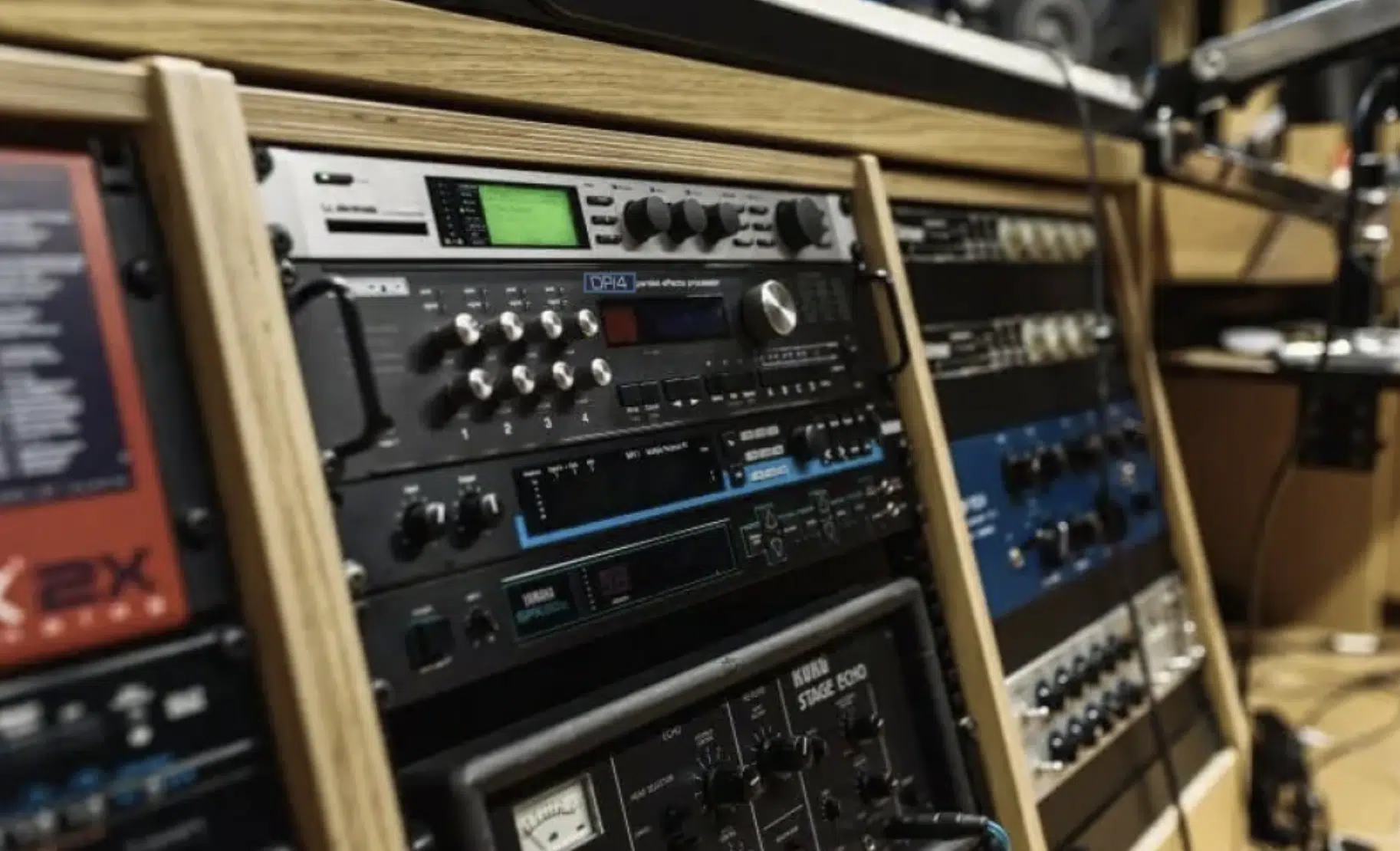
If a client hires you for a single service, consider upselling or cross-selling additional freelance producing services.
For example, if you’re simply producing a track, offer post-production mastering or editing services with the newest technology (with examples on your site).
These add-ons not only increase your income per project but also showcase the full range of your abilities.
It’s about demonstrating value and developing deeper relationships with your clients and yes, of course, securing the bag.
-
Building a Reputation as a Go-To Freelance Producer

Becoming the go-to freelance producer means building a strong reputation over time, if you make sure to:
- Deliver consistently high-quality work
- Be responsive
- Always communicate clearly
When you’re known for your reliability and creativity, you become the first choice for many clients, and then they tell all their friends as well, which leads to more money.
A solid reputation is built on every interaction, every project, and every follow-up.
If you are slow, unreliable, or plain out not good at what you do, then you’ll never really break into the freelance producing field.
So, make sure to always keep sharpening your skills and come through for your clients (don’t set unrealistic time agreements either, that’s never a good look).
-
Managing Growth and Scaling Your Business

As you take on more projects and grow your client base in the freelance producing world, you’ll need to think about scaling your business in a major way.
This could mean hiring an assistant, collaborating with other producers, or expanding your services to include more than just basic tasks.
Expanding your reach to a wider audience could include creating digital products like sample packs or hosting online workshops to showcase your skills.
Managing growth involves strategic planning, building the right team, and making sure that the quality of your work remains high even as your workload increases.
It’s all about finding that balance between managing resources and continuing to deliver top-notch results that blow people away.
By carefully scaling your operations, you can ensure sustainable growth and long-term success in the competitive world of freelance producing.
Bonus: Time Management and Productivity

Time management and productivity, like any other career, is a key to being successful.
It’s about having the ability to prioritize tasks, manage multiple projects at the same time, and consistently meet deadlines without compromising on quality.
You’ll have to have your organization skills in check and make sure you have a solid, strategic approach to your workflow.
Beyond just staying organized, it’s essential to handle stress and pressure so each and every project is completed without a hitch.
In a nutshell, a successful freelance producer must be able to:
- Prioritize their workload efficiently
- Maintain strong organizational habits
- Consistently meet deadlines
- Ensuring the highest standards of production
Developing the ability to manage stress and pressure in a fast-paced environment is just as important too, because then you’ll maximize output and be super effective.
Balancing all of these elements lets a freelance producer like yourself thrive in a competitive market and continuously deliver exceptional results.
Freelance Producing: Final Thoughts
Freelance producing is a dynamic and rewarding career that gives you the freedom to work on diverse projects, collaborate with talented artists, and create a name for yourself in the industry.
And now, after this article, you’ll be able to successfully attract clients, manage your business, and secure jobs all day long.
And, as a special bonus, you’ve got to check out this legendary Beatmaking Secrets course to help you become a better all-around producer.
You can learn how to produce hit-worthy beats like the professionals in just a week (5-step system), which is pretty much unheard of, and become a freelance producing master.
Plus, learn signature sound hacks, supercharge your brand, and enhance all of your production skills, taking them to the next level.
It’s the world’s first step-by-step program that is guaranteed to make you a killer producer in no time.
Remember, the path to becoming a successful freelance producer is all about persistence, learning, and delivering top-quality work every single time.
So keep pushing forward, stay adaptable, and use these freelance producing strategies to build a thriving freelance career where you’re always one step ahead of the competition.
Until next time…







Leave a Reply
You must belogged in to post a comment.